Catholic Church Sex Abuse Survivors Frustrated By Pope Francis' US Visit, Lack Of Action
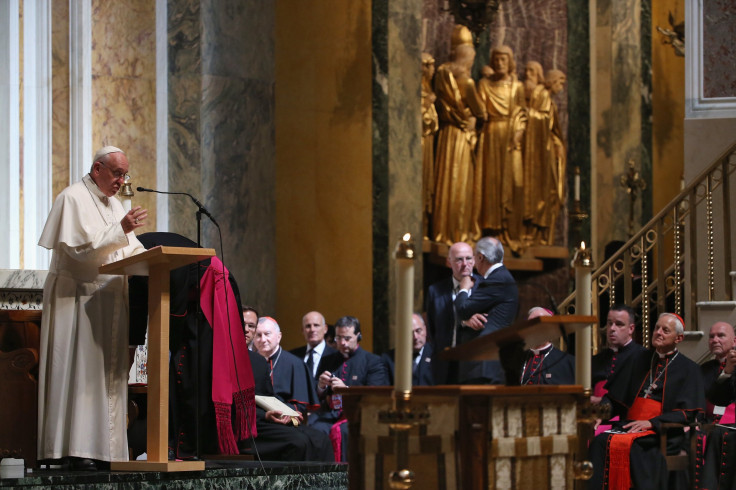
Bernie McDaid remembers staring at the stained glass the first time his Catholic priest molested him. He said he was about 12 years old, an altar boy standing in the sacristy of St. James’ Church outside of Boston, when the Rev. Joseph E. Birmingham grabbed him, started tickling and then put his hands down McDaid’s pants.
McDaid soon began skipping Mass, hoping to avoid the older man. When Birmingham realized he wasn’t seeing the boy in church, he started organizing beach trips with McDaid and his classmates. McDaid would try to hide in the bushes in front of his house when Birmingham’s gold Plymouth Fury came cruising down the street to pick him up. Once in the car, he and his friends would scramble to jump out at every stop, because if they were left alone, Birmingham would ask whether they’d been masturbating, McDaid said. Sometimes, he’d scream at them.
Since then, more than 30 men have reportedly come forward claiming Birmingham abused them as kids, and the Archdiocese of Boston settled on the grounds of at least one such victim’s claims in 1996. Birmingham died in 1989.
Years later, McDaid -- no longer a Catholic -- sat next to his mother in Nationals Park in Washington, D.C., watching as Pope Benedict XVI rode around in the popemobile. It was 2008, and McDaid said he had tears in his eyes as Benedict waved to the 46,000 cheering people packed into the stands for Mass. “The crowd treated him like a rock star, and I couldn’t get over that,” McDaid said. “He’s not God. He’s not a rock star.”
Benedict's successor, Pope Francis, arrived Tuesday in the United States for another historic papal visit. But as the pontiff tours the East Coast, meeting privately with President Barack Obama and touring Central Park, victims like McDaid worry his celebrity reception overshadows the Catholic church’s long history of clergy sex abuse. Still scarred from their childhood experiences, survivors and advocates say they’re frustrated by the overwhelmingly positive view of the modernizing church and pope, both of which they argue refuse to rectify the situation in order to save their reputation. They say that every minute without a resolution, more children are being abused.
“I understand all of the excitement, but really on some level you have to step back as an adult and realize that he’s just a man and this is a business,” said McDaid, now 59. “And they’ve covered up this problem.”
‘Who Are We Kidding?’
Sex abuse has existed in the Catholic church for decades, both in the U.S. and abroad. American lawsuits made public incidents in the 1940s and again in the '80s, but they were largely viewed as isolated occurrences. That all changed in 2002, when an investigation by the Boston Globe revealed a horrifying trend of cover-ups and kicked off a flood of media coverage. In 2004, a study commissioned by the U.S. Conference of Catholic Bishops found that more than 4 percent of priests over the past 50 years had been accused of sexually abusing minors.
In 2010, amid a wave of lawsuits in Europe, news broke that then-Pope Benedict XVI had declined years earlier to respond to letters from an American bishop requesting a Wisconsin priest be prosecuted for molesting boys. Benedict resigned three years later.
Pope Francis was elected, and now -- on his first papal visit to the U.S. -- people like Pat Marker, a 50-year-old victim advocate and stay-at-home dad in Seattle, are hoping this pontiff will address the scandal because the victims say they are still hurting. As it stands, the American Catholic church doesn’t deserve to be celebrated, he said.
“When the pope visits a country, it’s like having the Olympics. You put your best face forward and you pretend that everything’s OK, and then once the Olympics leave, you’re left with little to show for it,” Marker said. “Who are we kidding when we put on a smile for such a visit?”
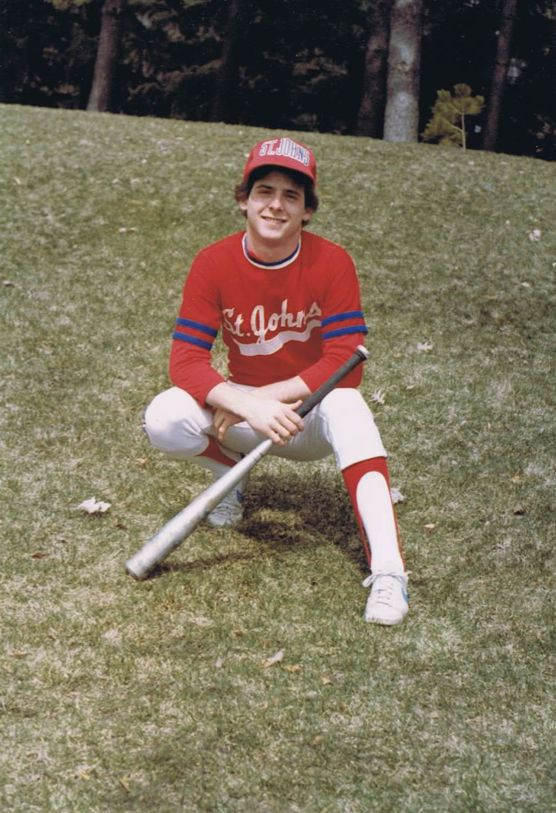
As a child, Marker grew up in the church. His parents regularly invited members of the congregation and the church leadership to meals, and he attended Catholic school from fifth grade through high school graduation. A priest took Marker to his first Seattle Seahawks game. A priest taught Marker to drive.
But in the 1980s, his parents got jobs in Minnesota and moved the family. Marker was intensely homesick, and the only person who picked up on it was the Rev. Dunstan Moorse at St. John’s Abbey in Collegeville, Minnesota.
At first, it was nice to have someone to talk to. After a few months, Marker said Moorse would try to kiss him, but he simply pushed the monk away.
Then, one day, Moorse led Marker downstairs to his living quarters to help him sew chains on vestments -- garments that clergy members wear. Moorse allegedly looked at Marker and said, “Today’s the day.” Marker said he ended up undressed, only allowed to keep on his baseball cap, and the monk began to masturbate him. Marker said he recalls watching the older man, who was naked himself, become frustrated when Marker’s body wouldn’t respond. Soon after that, he blacked out -- he said he can’t remember anything else.
Years later, after nightmares and flashbacks and a road trip to find himself, Marker said he called Moorse to ask for money to cover expenses for counseling associated with the incident. Marker said he’ll never forget the priest’s response: “Pat, I can’t. … If they find out I did this to someone else, they’ll kick me out.”
In the 1990s, Marker and Saint John’s Abbey reportedly settled a lawsuit over the alleged abuse, and in 2013 Moorse’s name was included on a list of likely offenders released by the monastery.
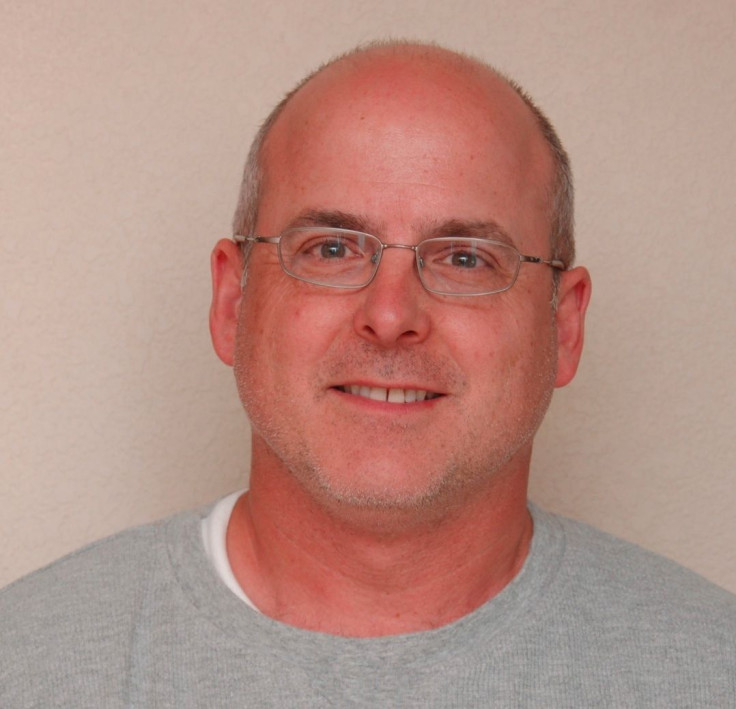
Marker has made it a lifelong mission to get the names of all church leaders accused of sex abuse publicized. The Globe investigation, as well as subsequent reports, found that many abusers were repeat offenders -- instead of firing priests linked with assault, church higher-ups made a habit of simply transferring them. The 2004 study found 143 priests who were identified as serial abusers, including nine men who had been accused of assault in three different dioceses. Some accused priests are still working today, either in the U.S. or abroad, GlobalPost reported.
Marker said Pope Francis should release all the names of clergy members who have been reliably accused of sex abuse. With each name comes an apology, he said, and that apology helps victims heal. He pointed to the case of his classmate Ben Spanier, whose parents allege he was abused by the Rev. Thomas Andert at Saint John’s Abbey in the mid-1990s. Pending a separate investigation, the accused priest was put on leave this past August -- too late for Spanier, who killed himself in December 2014.
“[Ben] would still be alive if they did it in 1994, 2011 or 2007… there were so many opportunities to save Ben's life,” Marker said. “Harboring pedophiles and holding their names back because there is no pending media story or lawsuit is the wrong approach.”
‘That’s What Jesus Would Do’
It took decades for Barbara Blaine to come to terms with her abuse -- and her epiphany came nearly by accident. Years after she said the Rev. Chet Warren at St. Pius X Church in West Toledo, Ohio, had an inappropriate relationship with her as a young teenager, Blaine went to see a therapist. At their first meeting, the counselor was asking general questions, like where Blaine grew up, whether her parents cared for her and who she kissed first.
As the words came out of her mouth, Blaine said she was struck by self-awareness. “It was at that moment that I began to have a little insight. ‘Um, oh, it was seventh, eighth grade. The priest at my church [was my first kiss],’ ” Blaine said. “As I said that, it was the beginning of recognizing that, ‘Oh, that’s abuse. That wasn’t me doing something wrong.’ ”

The bishop of St. Pius X Church publicly apologized to another Warren victim for the priest’s behavior as part of a settlement in 2005. At least five women reportedly accused the priest of abuse.
Today, Blaine is the founder and president of the Survivors Network of those Abused by Priests, a self-help organization based in Chicago. She said that although Francis seems to be more compassionate than his predecessors, he hasn’t actually done anything to make children safer. As of 2014, the U.S. Conference of Catholic Bishops has identified at least 17,259 people who say they were abused by priests as children, according to the Massachusetts nonprofit Bishop-Accountability.org.
“The time for words and apologies is over,” Blaine said. “What we don’t have is any real effort to determine who was hurt, what are their damages and how can they be made whole. That’s what the response should be of the pope. That’s what Jesus would do.”
Francis spoke out on the issue earlier this year. In July, during Mass with a group of victims, he condemned the abusers while asking for forgiveness. This past summer, he also approved the creation of a tribunal to handle the cases of bishops accused of covering up the problem.
“There is no place in the Church’s ministry for those who commit these abuses, and I commit myself not to tolerate harm done to a minor by any individual, whether a cleric or not,” Francis said in 2014. “All bishops must carry out their pastoral ministry with the utmost care in order to help foster the protection of minors, and they will be held accountable.”
He repeated this message Wednesday while speaking to bishops at Saint Matthew’s Cathedral in Washington, D.C., calling upon them to “work to ensure such crimes will never be repeated.”
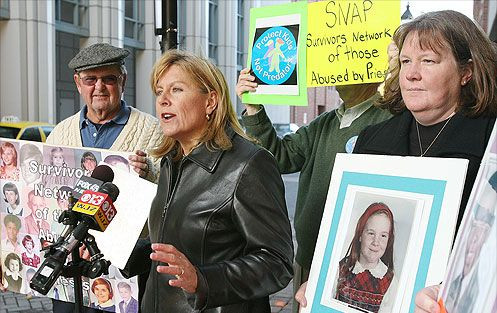
Blaine said she hopes the United Nations holds the pontiff himself accountable, either during his appearance Friday at the U.N. General Assembly in New York or in the future. A U.N. human rights committee published a report in 2014 that criticized the Vatican for “systematically [placing] preservation of the reputation of the church and the alleged offender over the protection of child victims.”
As it stands, Blaine said, “there’s all these accolades with the pope as though everything’s fine. But that’s not the case.”
‘A Slap In The Face’
Mark Rozzi said the Rev. Edward Graff used to make him stand outside the back of the rectory while he walked in alone, because he couldn’t risk other clerics seeing them together. By the end of eighth grade, it was all part of a routine: They’d serve Mass, go to McDonald’s or drink beer in Graff’s room at Holy Guardian Angels Catholic Church in Reading, Pennsylvania. Rozzi said the priest told him he wanted to teach the boy about sex -- lessons that often required watching pornographic videos and taking Polaroid pictures of Rozzi’s genitals.
One day, Rozzi said Graff invited him to come up with a classmate under the guise of showing them sexual positions. Rozzi said the older man began performing oral sex on him. When the boy refused to reciprocate, Graff led him to the shower, where Rozzi said the father turned on the water and raped him.
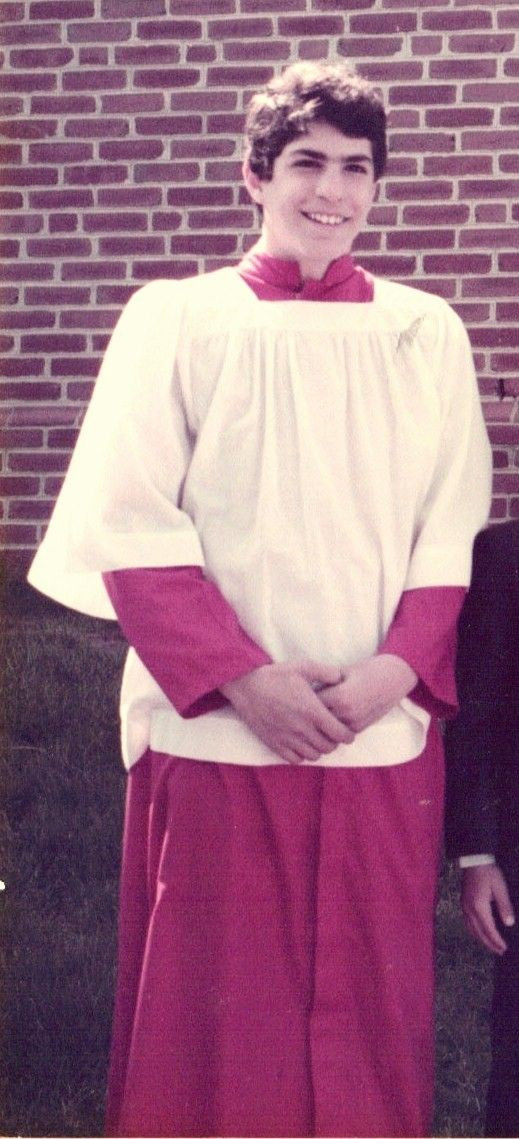
Rozzi said he fled, literally running home, but he found himself unable to tell his mother the truth about what had happened. There were other effects, too.
“Everything in my life changed for me. I never got a good night’s sleep again,” he said, adding that each morning when he wakes up, he almost has to force himself to bathe. “I’m 44, and every day I step in that shower it takes me back to when I was 13 years old. Every single day you relive this.”
The Allentown, Pennsylvania, Diocese reportedly settled in 2003 after a 15-year-old in Texas claimed Graff abused him. Graff died the year before after breaking his hip in jail awaiting trial on related molestation charges.
Rozzi, now a Democratic state representative, has focused his efforts on changing the statute of limitations laws on sex crimes. Reuters reported that states like Pennsylvania and New York have seen bills recently attempting to extend or eliminate the designated time periods after which victims cannot bring charges against abusers, but the church has attempted to block them.
Rozzi said the pope has the power to fix this. If Francis instructed his supporters to allow the bills to go through, the courts could do their job and get justice for the victims.
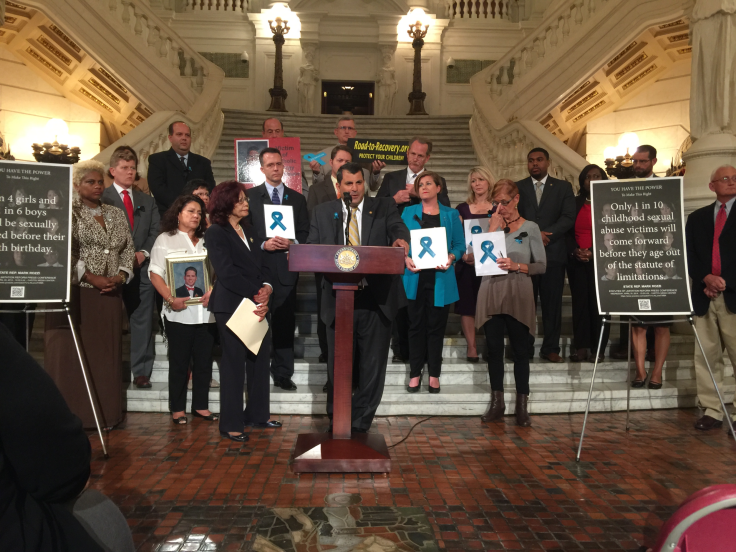
But Rozzi said he won’t do that. The Catholic church is a business, and Francis wants to keep its image clean. That’s why his entire visit to the U.S. seems like “a slap in the face” to Rozzi.
“He's just another CEO of a corporation that’s going to always do what is best for the corporation,” Rozzi said. “The pope can come here 100 times, and it’s still not going to affect the way victims feel that clergy abuse.”
© Copyright IBTimes 2024. All rights reserved.






















